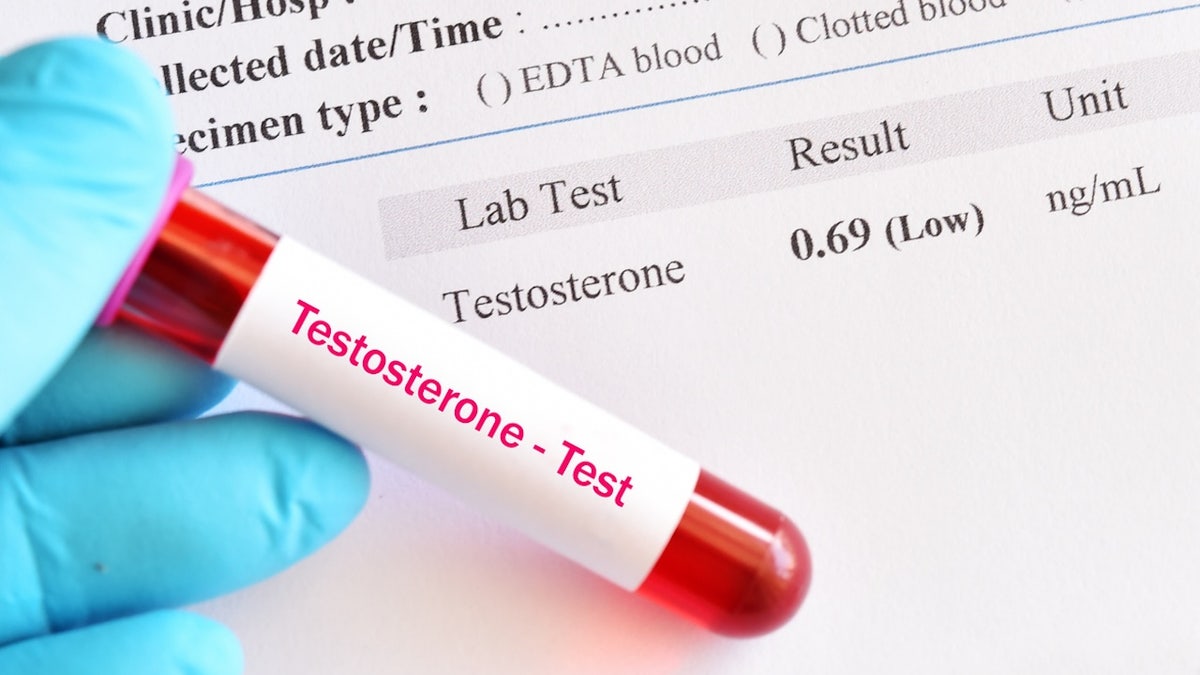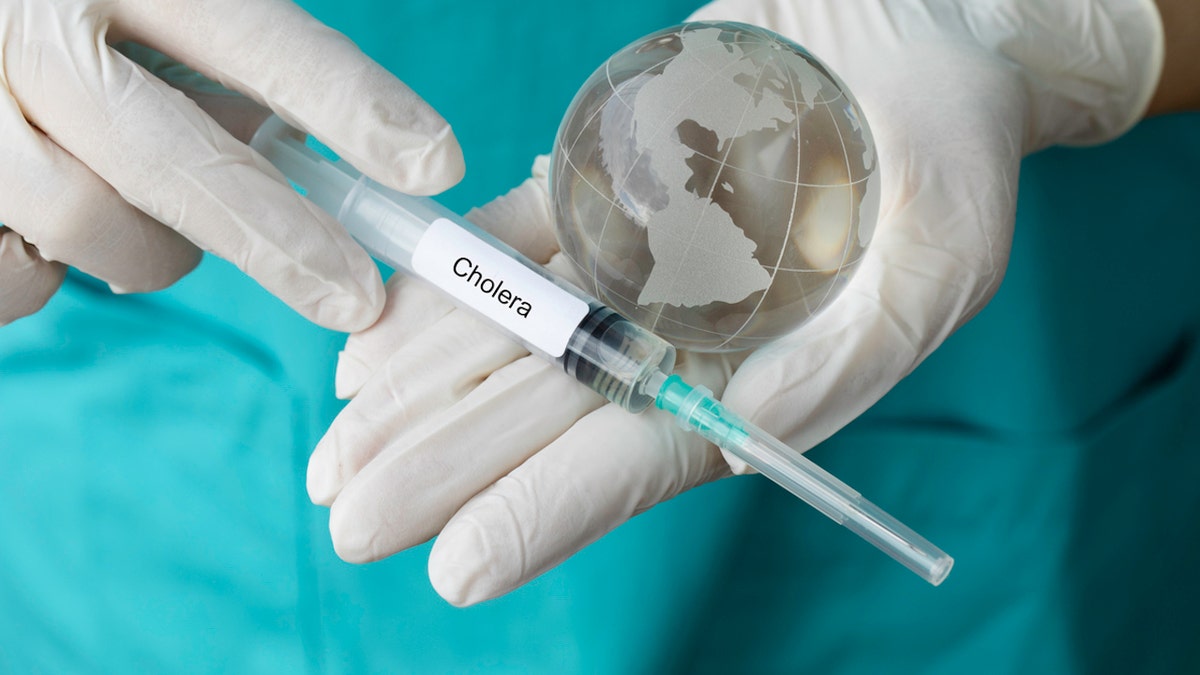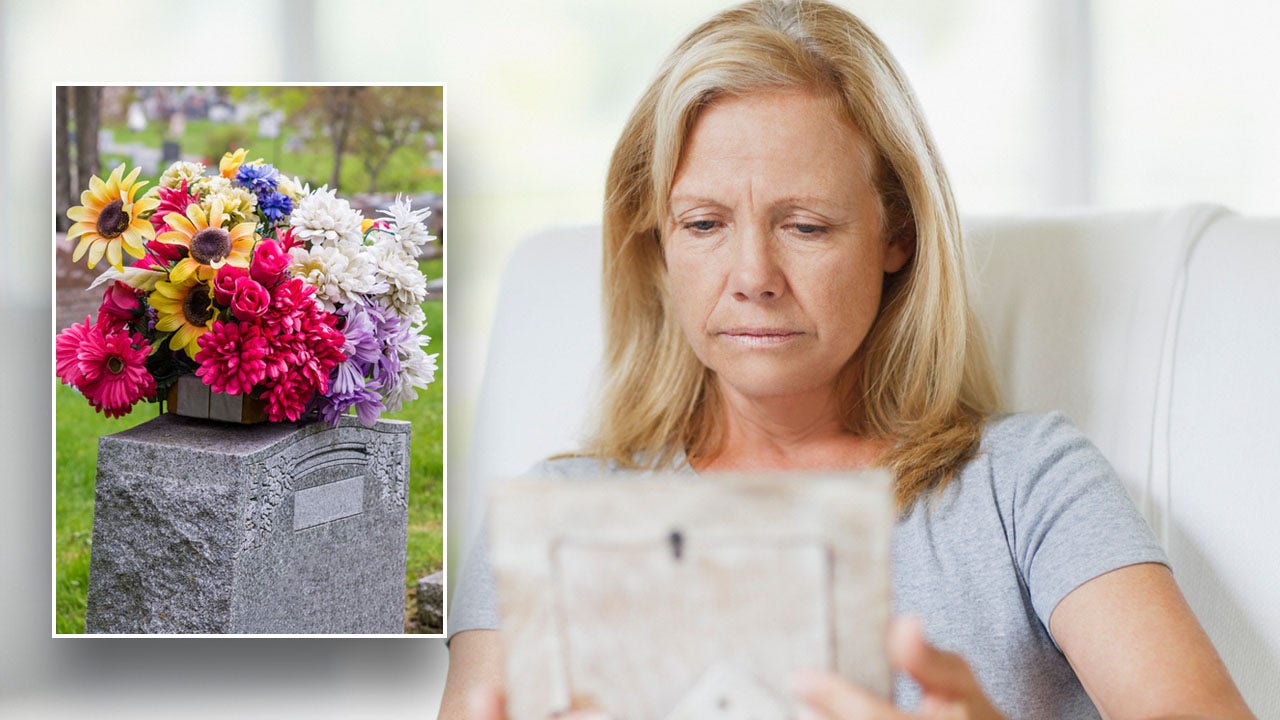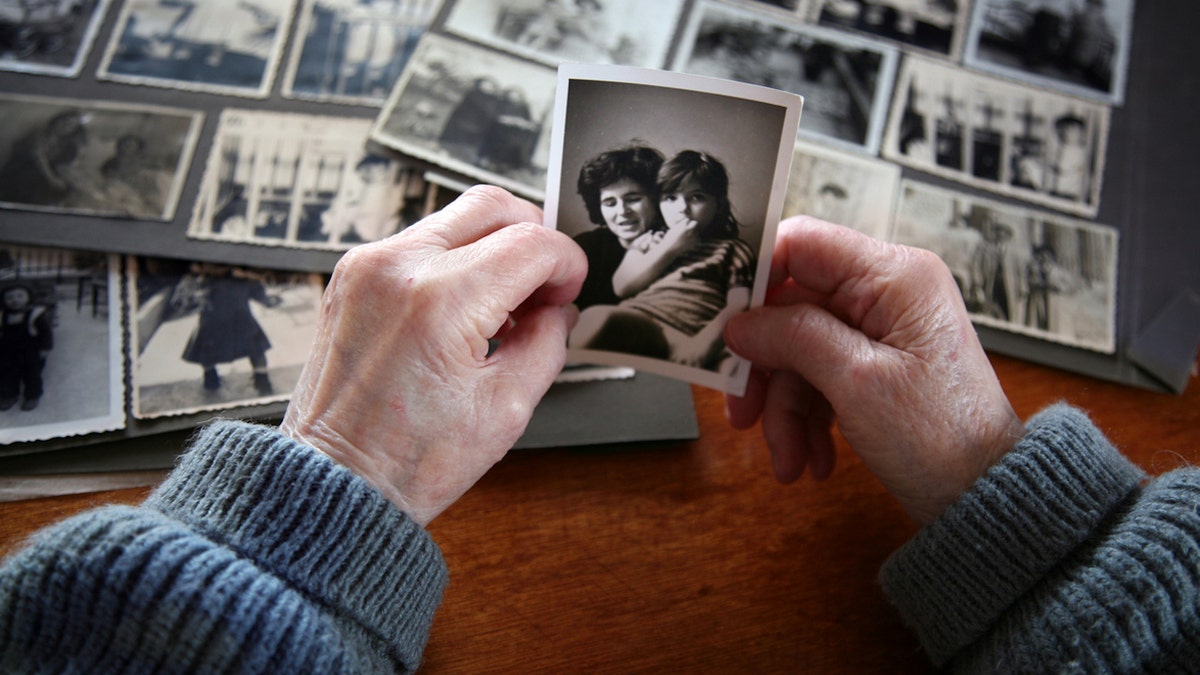Health
Improve your sleep by optimizing 6 biomarkers: ‘Integral to health’

Even if you’ve cultivated the perfect environment for sleeping, some invisible details may be interfering with a good night’s rest.
Certain biomarkers — also called biological markers or medical signs, according to the National Institutes of Health — can have a direct impact on sleep.
“Various factors can affect sleep,” said Dr. Brett Osborn, a Florida neurologist and longevity expert, in an interview with Fox News Digital. “Some of them, biomarkers, can be measured with simple laboratory tests.”
ALWAYS FEELING TIRED? EXPERTS SHARE 4 COMMON CAUSES OF DAYTIME FATIGUE
The values of these biomarkers are an indicator of an individual’s health and wellness.
Experts shared the six biomarkers that have the biggest effect on sleep — and tips on how to optimize them.
Certain biomarkers, also referred to as biological markers or medical signs, can have a direct impact on sleep. Experts identify the measurements. (iStock)
“What you can measure, you can optimize,” said Osborn.
“Optimizing these markers may improve not only your sleep quality, but also your overall health.”
Here are six.
Biomarker 1 – Vitamin D
Optimal vitamin D levels can improve sleep quality by helping you fall asleep faster and increasing the amount of time you spend asleep, according to Michelle Darian, a registered dietitian and science and product marketing manager at InsideTracker, a health platform that provides personalized nutrition and lifestyle recommendations.
“Low blood levels of vitamin D are associated with decreased sleep time, decreased sleep efficiency and increased daytime sleepiness,” Chicago-based Darian told Fox News Digital.
SHOULD YOU DRINK COFFEE FIRST THING IN THE MORNING, OR WAIT A WHILE? EXPERTS REVEAL CAFFEINE GUIDANCE
“Research notes that vitamin D is indirectly involved in the production of melatonin — a hormone that mediates the sleep cycle — and brain receptors responsible for sleep regulation.”
To optimize vitamin D levels, Darian said she recommends getting 20 minutes of sunlight a day and eating vitamin D-rich or fortified foods like fatty fish like salmon, tuna and mackerel or fortified dairy products.

To optimize vitamin D levels, Darian recommends getting 20 minutes of sunlight a day and eating vitamin D-rich or fortified foods. (iStock)
“This can help you meet your body’s daily needs and help you fall asleep faster to increase the time you spend asleep,” she said.
For those with vitamin D deficiency, a supplement may be needed to boost levels.
“Optimizing these markers may improve not only your sleep quality, but also your overall health.”
“Studies have shown that improving vitamin D levels by taking a supplement improves sleep,” noted Darian.
People who take a vitamin D3 supplement should also add vitamin K2 to protect the inner lining of the blood vessels, Osborn advised.
Biomarker 2 – Magnesium
Magnesium helps to activate the parasympathetic nervous system, which is responsible for calming and relaxing the body, Osborn noted, which is in contrast to the sympathetic system that regulates fight or flight responses.
“Low magnesium levels can lead to restless sleep and frequent awakenings,” he told Fox News Digital.

Low magnesium levels can lead to restless sleep and frequent awakenings, an expert said. (iStock)
To optimize magnesium levels, he recommends including magnesium-rich foods in your diet, such as leafy greens, nuts, seeds and whole grains.
Taking a daily magnesium chelate supplement can also help ensure sufficient levels, Osborn added.
Biomarker 3 — Cortisol
Levels of the stress hormone cortisol naturally fluctuate throughout the day, peaking in the morning to help get you out of bed and declining at night as your body relaxes in preparation for sleep, according to Darian.
“High levels of stress before bed can cause cortisol levels to stay high, making falling and staying asleep harder and delaying the production of melatonin,” she told Fox News Digital.
“You need a healthy cortisol rhythm to keep your sleep cycle in check.”
UNTREATED SLEEP APNEA PRESENTS ‘DISRUPTIVE’ DANGERS TO PEOPLE’S LIVES, INCLUDING HEART ISSUES, SAYS EXPERT
If cortisol levels are too high at night, this leads to fragmented sleep (waking up during the night), decreased slow-wave sleep (deep sleep), reduced sleep duration and insomnia, Darian said.
To help regulate cortisol levels, it’s best to stick to a consistent sleep schedule, avoid caffeine in the hours before bed, and stay off electronics right before bed, she suggested.
“You need a healthy cortisol rhythm to keep your sleep cycle in check.”
“Aim to keep your bedroom environment dark, as light can keep cortisol levels elevated and melatonin levels low, which you want to avoid before bed,” Darian said.
Exercising in the morning can also help to spike cortisol and alertness early in the day, which will be conducive to better sleep as it decreases hours later.
“Incorporating diaphragmatic breathing can also help decrease stress and cortisol levels,” Darian added.
Biomarker 4 – Testosterone
Testosterone, an anabolic hormone, is needed to build muscle and bone strength, speed tissue recovery and stimulate red blood cell production to facilitate the body’s recovery processes, according to Darian.
“Low testosterone levels may hinder the body’s muscle-building and repairing capabilities that naturally occur during sleep,” said Darian.

“Low testosterone levels may hinder the body’s muscle-building and repairing capabilities that naturally occur during sleep,” an expert told Fox News Digital. (iStock)
Research suggests that adequate sleep duration — seven to nine hours of sleep at night — is linked to higher levels of the hormone, she said.
To optimize testosterone levels, experts recommend getting regular exercise and eating a diet that contains healthy fats.
“It’s important to note that too much or too little exercise can lead to low testosterone levels,” Darian advised.
SLEEP DEPRIVATION DANGERS: HOW PULLING AN ALL-NIGHTER AFFECTS YOUR PHYSICAL AND MENTAL HEALTH
“Consuming foods high in zinc, magnesium, calcium, vitamin D and healthy fats such as almonds or hazelnuts; black beans, lima beans, or black-eyed peas; lean poultry or beef appear to lead to improved testosterone levels,” she added.
If testosterone levels are low, Darian recommends measuring magnesium and vitamin D levels, as low levels of both are associated with lower testosterone.
Biomarker 5 – Blood glucose and HbA1C
High blood glucose (sugar) levels can lead to increased wakefulness at night and difficulty falling asleep, while low levels may cause awakenings due to symptoms of hypoglycemia, noted Osborn.
Hemoglobin A1c (HbA1c) is a blood test that measures your average blood sugar levels over the last three to four months, according to Darian.

Levels of the stress hormone cortisol naturally fluctuate throughout the day, peaking in the morning to help get you out of bed. (iStock)
“Both acute and chronic sleep deprivation are associated with reductions in glucose tolerance and reduced insulin response,” she said.
To optimize blood sugar levels, Darian recommends finishing up large meals at least two hours before bed.
IS YOUR SLEEP INTERRUPTED BY LEG CRAMPS? HERE ARE SOME OF THE MOST SURPRISING CAUSES
“Nighttime meals — especially those high in fat or fiber — have been linked to poorer sleep quality,” she said.
To assist with better glycemic control, some may consider metformin, a medication for type II diabetes, Osborn added.
Biomarker 6 – hsCRP
The high-sensitivity C-reactive protein (hsCRP) is closely tied to the immune system’s inflammatory response, Darian said.
“Research shows that sleep deprivation can lead to long-term inflammation, impairing the body’s immune system and its ability to fight infections,” she told Fox News Digital.

Biomarkers can be measured with simple blood laboratory testing. (iStock)
“As bodily processes slow down during sleep, the body must divert and allocate resources to each function.”
Less sleep time can reduce the time and energy needed to address lingering inflammation and leave hsCRP levels elevated, she warned.
CLICK HERE TO SIGN UP FOR OUR HEALTH NEWSLETTER
The key to lowering hsCRP is to eat a low-glycemic, anti-inflammatory diet rich in omega-3 and omega-9 fatty acids, Osborn said, in addition to getting regular physical activity and managing stress levels.

“A good night’s sleep is integral to your health — it’s like rebooting your computer,” a longevity expert said. (iStock)
“Individuals with high hsCRP should consume adequate amounts of fiber through foods like avocados, tofu, brussel sprouts, black beans or yams,” Darian added. “Antioxidant-rich foods like berries, nuts and seeds are also shown to support healthy hsCRP levels.”
All of these biomarkers can be measured with simple blood laboratory testing, both experts said.
“A good night’s sleep is integral to your health — it’s like rebooting your computer,” said Osborn.
Sleep has restorative effects on the brain and the body, he said, with positive effects on memory, learning, muscle recovery, stress and disease risk.
For more Health articles, visit www.foxnews.com/health.

Health
Handling grief on Mother's Day, plus disease-fighting foods and heart health risks

Mother’s Day is a celebration for most, but it can be tough for those who have recently lost their mother. Experts share tips for handling the rush of emotions. (iStock)
MISSING MOM – The first Mother’s Day after losing a mom can be challenging. A mental health expert shares five tips for navigating grief during the holiday. Continue reading…
ABCs of BETTER ZZZs – A sleep hack circulating on social media could help you drift off faster at night. Plus, sleep experts share their own tips. Continue reading…
SEEING RED – A short temper could make you more susceptible to a heart attack, a new study suggests. Cardiologists weigh in on the risk. Continue reading…

Feeling angry for as little as eight minutes a day could raise your chances of experiencing a cardiac event, according to a new study. (iStock)
MOM ON A MISSION – A Pennsylvania mother is urging people to join the bone marrow registry to help her 10-year-old daughter, along with other patients waiting on donations. Continue reading…
ASK A DOC – ‘Is it safe to crack my back or neck?’ Doctors share cautions. Continue reading…
FOOD FOR THOUGHT – Eating at least three servings of yogurt per week could reduce the risk of a common disease, according to the FDA. Nutritionists share the benefits. Continue reading…

Yogurt that contains live, active cultures is a great way to get good bacteria in your diet, according to a nutritionist. (iStock)
SENIOR SCREENINGS – Health officials recommend mammograms for women aged 40 to 74 – but why are senior women excluded? Medical experts explain. Continue reading…
HOLY GUACAMOLE! – Eating more avocado could help prevent the risk of a common disease in women, some claim. Here’s what you should know. Continue reading…
VACCINE SHORTAGE – As a bacterial infection spreads globally, some public health officials are calling for a ramp-up of vaccine production. Continue reading…

Around 473,000 cases of cholera were reported to the World Health Organization in 2022, which was twice as many cases as the prior year. (iStock)
FOLLOW FOX NEWS ON SOCIAL MEDIA
YouTube
SIGN UP FOR OUR NEWSLETTERS
Fox News First
Fox News Opinion
Fox News Lifestyle
Fox News Health
Fox News Autos
Fox News Entertainment (FOX411)
DOWNLOAD OUR APPS
Fox News
Fox Business
Fox Weather
Fox Sports
Tubi
WATCH FOX NEWS ONLINE
Fox News Go
STREAM FOX NATION
Fox Nation
Health
The Oatzempic Diet Is Going Viral, but Does It Work? Here’s How To Tap Real Weight Loss Benefits

Sign Up
Create a free account to access exclusive content, play games, solve puzzles, test your pop-culture knowledge and receive special offers.
Already have an account? Login
Forgot your password?
Get back to the Sign In
Use left and right arrow keys to navigate between menu items.
Use escape to exit the menu.
Health
Grieving during Mother’s Day: 5 tips for navigating the first holiday after losing a mom

Mother’s Day is a celebration for most. Yet for those who have lost their moms, it can be a difficult day marked by grief and isolation.
“The first year after any loss can be awful, but the holidays stand out in particular,” noted Rebecca Feinglos, a certified grief support specialist in North Carolina and founder of Grieve Leave, an online community to support grievers.
“Your first Mother’s Day after the death of your mom can make her absence feel even more real. It’s a stark reminder of the permanence of the loss.”
3 SURPRISING LESSONS AFTER LOSING A SPOUSE AND TRYING TO MOVE FORWARD IN LIFE: ‘STILL EVOLVING’
For those who had a close bond with their mother, Feinglos said the absence can feel like a “gaping hole” in their everyday lives.
“And for those whose relationships with their mothers were less than ideal, Mother’s Day can bring up a whole different set of emotions,” she said.
For those who have lost their mothers, Mother’s Day can be a difficult day to manage. A certified grief support specialist (not pictured) shares insights and help for coping. (iStock)
“There may be a mix of grief for the relationship they never had, along with anger or resentment over past hurts.”
“The key is to be intentional about how you want to spend the day.”
It doesn’t help that Mother’s Day is a highly publicized holiday with such an emphasis on the mother-child relationship, Feinglos said.
“Everywhere you turn, there are advertisements, social media posts and conversations centered around celebrating mothers,” she said.
MOTHERS SHARE STORIES OF THEIR LIVES, PLUS TIPS AND INSPIRATION, IN ‘LOVE, MOM’ BY DR. NICOLE SAPHIER
“For those who have recently lost their mom, this constant barrage of Mother’s Day messaging can feel like salt in the wound, regardless of the circumstances of their relationship.”

“For those who have recently lost their mom, [the] constant barrage of Mother’s Day messaging can feel like salt in the wound, regardless of the circumstances of their relationship,” an expert said. (iStock)
For those who are approaching their first Mother’s Day after losing a mom, Feinglos offered five tips for navigating the difficult emotions.
1. Make a plan
“Trust me, you don’t want to wake up on your first motherless Mother’s Day with no idea of how to spend the day,” Feinglos said.
“That’s a recipe for a major grief spiral and for potentially doom-scrolling other people’s ‘Happy Mother’s Day’ posts.”
The expert recommends thinking in advance about what you might want your day to look like — and then planning for it.
HOLIDAY GRIEF CAN BE HANDLED IN THESE 9 WAYS, ACCORDING TO MENTAL HEALTH EXPERTS
“It doesn’t have to be anything fancy. Maybe it’s watching your mom’s favorite movies on Netflix, ordering her favorite takeout, or going for a hike on a trail you used to walk together,” she said.
“The key is to be intentional about how you want to spend the day.”

“The first year after any loss can be awful, but the holidays stand out in particular,” a grief expert noted. (iStock)
If you do decide to venture out, Feinglos said, it’s important to be prepared for Mother’s Day-focused events, including restaurant menu specials.
“If that feels like too much to handle, consider having an at-home dinner plan instead,” she suggested.
2. Reach out to others
Grief can be isolating, Feinglos said, and it’s easy to feel like you’re the only one in the world who has ever felt this way.
“But when you’re open and willing to ask for help, you might be surprised by how much better you’ll feel just saying that you’re having a tough time,” she said.
“Your first Mother’s Day after the death of your mom can make her absence feel even more real.”
If you’re feeling overwhelmed or just need someone to talk to, Feinglos said to take the initiative in reaching out, rather than waiting for someone to contact you.
“Pick up the phone, send a text or even just post on social media about how you’re feeling,” she suggested.

Those who are grieving should reach out to family and friends for support, an expert advised. (iStock)
“I have a feeling that your community will be ready and willing to offer their support.”
3. Let people support you
Those who are grieving may be afraid that they’re a burden on friends and loved ones, Feinglos noted.
“But here’s the thing: The people who care about you want to be there for you,” she said.
MOTHER’S DAY: THE BEST ONE-LINERS AND LIFE ADVICE I’VE EVER GOTTEN FROM MOM
“So, when your best friend offers to come over on Mother’s Day and hang out, or your sibling suggests a family Zoom call, say yes. Letting others show up for you can make the day feel a little less overwhelming.”
4. Create a ritual to make space for your grief
One of the most meaningful things you can do on Mother’s Day, according to Feinglos, is to “intentionally create a ritual that makes space for your grief.”

Journaling or writing a letter to your late mother is one way to process your feelings on Mother’s Day. (iStock)
“That could mean writing your late mother a letter and burning it or casting it into a body of water, visiting a place that was special to both of you, listening to her favorite music — or doing something that reflects her values and passions,” she said.
The idea is to do something intentional that helps you feel connected to your mom, even though she’s not physically there, the expert said.
“By creating space for your grief, you’re giving yourself permission to feel all the complicated emotions that come with loss.”
“Your relationship with your person can continue even when they’ve died,” Feinglos said.
GRATITUDE OVERSHADOWS GREAT LOSS, SAYS AUTHOR OF BOOK ABOUT LOSING WIFE TO CANCER
“By creating space for your grief, you’re giving yourself permission to feel all the complicated emotions that come with loss.”
5. Know that there are different shades of grief
Grief doesn’t follow any rules or timelines, Feinglos said — and it can look completely different from one person to the next, especially because every bond is unique.
“There’s no one ‘normal’ way grief plays out,” she said.
“For some, it might hit like a tsunami of tears, especially on gut-punch days like Mother’s Day.”

It’s important not to suppress or ignore feelings of grief on Mother’s Day, a mental health expert said. (iStock)
“Maybe you vacillate between being present one moment and feeling utterly numb the next, laughing through tears one day and feeling bitter anger the next.”
On a day like Mother’s Day, Feinglos said, you might find that your thoughts loop back to your loved one regularly, or you could tend to avoid anything that could stir up memories.
CLICK HERE TO SIGN UP FOR OUR HEALTH NEWSLETTER
Whatever way your grief manifests, Feinglos emphasized the importance of not trying to suppress or ignore it.

“At its core, grief underscores one truth: You’re alive, you’re human, and you’re going through a loss,” an expert said. (iStock)
“When we disregard our grief, it can pop back up in ways that are really inconvenient, or even scary — like lashing out at loved ones, feeling hopeless or [engaging in] risky behaviors,” she told Fox News Digital.
“Give yourself the space and time to relearn what your life is like now with this loss in mind,” she continued.
“At its core, grief underscores one truth: You’re alive, you’re human, and you’re going through a loss.”
For more Health articles, visit www.foxnews.com/health.
-

 Politics1 week ago
Politics1 week agoHouse Republicans brace for spring legislative sprint with one less GOP vote
-

 World1 week ago
World1 week agoAt least four dead in US after dozens of tornadoes rip through Oklahoma
-

 Politics1 week ago
Politics1 week agoStefanik hits special counsel Jack Smith with ethics complaint, accuses him of election meddling
-

 Politics7 days ago
Politics7 days agoThe White House has a new curator. Donna Hayashi Smith is the first Asian American to hold the post
-

 Politics1 week ago
Politics1 week agoAnti-Trump DA's no-show at debate leaves challenger facing off against empty podium
-

 News1 week ago
News1 week agoAs student protesters get arrested, they risk being banned from campus too
-

 News1 week ago
News1 week agoVideo: Police Arrest Columbia Protesters Occupying Hamilton Hall
-

 World1 week ago
World1 week agoNine on trial in Germany over alleged far-right coup plot















